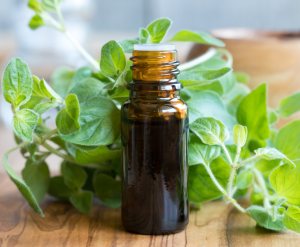How often do you eat Okra? Was it tasty to you? Did you know the health benefits you can get from it? Let’s find out the good health benefits of okra according to experts.
Okra is a flowering plant that is also named as lady finger or bhindi in several parts of the world. The seed pods of okra are extremely valuable, which is one reason for the plant’s widespread popularity.
This unique plant is known by its scientific name, Abelmoschus esculentus. Its exact origin is a mystery, but studies suggest it may have originated in South Asia, West Africa, or Ethiopia.
Table of Contents
Nutritional Value of Okra

Okra is frequently used as a vegetable in cooking despite the fact that it is botanically classified as a fruit. Okra has a fuzzy, peach-like exterior and a subtle flavor. You can eat the tiny seeds that are contained within the pods. Vitamin C, riboflavin, folate, calcium, and potassium are just a few of the many vitamins and minerals that can be found in abundance in okra.
Okra is a nutrient powerhouse, containing significant amounts of many essential minerals and vitamins, including A, B, C, E, and K. Also, okra has a modest amount of protein and fiber in addition to being low in calories and carbohydrates. In comparison to other fruits and vegetables, okra is unusual in that it contains protein.
Health Benefits of Okra
How does okra affect your health and what are okra’s health benefits to our body? Here’s a list of its health benefits that you might not know yet.
1. Reduces Drowsiness
Avoiding drowsiness may be as simple as eating okra regularly. The polyphenols and flavonoids in okra seeds act as antioxidants and aid the liver in storing glycogen. Okra increases glycogen, which acts as a fuel reserve in the body and helps you to feel more energized for longer.
2. Ward Off Cancer
Polyphenols found in okra, along with vitamins A and C, serve as antioxidants. In addition, it has lectin, a protein that may prevent the spread of cancer cells in people. In vitro studies using okra extracts showed a 63% reduction in breast cancer cell growth. More studies are needed to establish whether or not okra actually prevents cancer.
3. Cut The Risk Of Heart Disease
A higher chance of developing heart disease is seen in those with high cholesterol levels. Mucilage, a thick gel-like substance found in okra, can bind to cholesterol during digestion, preventing the body from absorbing it.
4. Combat Depression
A little down in the dumps lately? Eating okra regularly can help you combat depression due to the high phenol and flavonoid content it contains. Extracts from okra seeds have been found to have significant mood-enhancing effects.

5. Maintain A Healthy Blood Sugar Level
The health of your entire body depends on keeping your blood sugar levels stable. Pre-diabetes and type 2 diabetes are both caused by persistently high blood sugar. Okra has been found to reduce blood sugar levels, both through its peel and seeds.
Inhibiting carbohydrate-breaking enzymes, increasing insulin sensitivity, and maintaining an adequate number of insulin-producing pancreatic cells are all ways that okra aids in the management of diabetes. Greater insulin secretion and decreased carbohydrate breakdown into glucose lead to lower blood sugar levels.
6. Preventing Osteoporosis
There is evidence that vitamin K aids in bone development. Bones, however, are constantly replenishing themselves, and vitamin K has an important role in bone metabolism. The vitamin K content of raw okra is 31.30 g.
The recommended daily allowances of vitamin K are 122 mcg for women and 138 mcg for men, as reported by the National Institutes of Health (NIH).
7. Beneficial For Pregnancy
One cup (100 grams) of okra can provide 15% of a woman’s daily folate needs, making it a healthy addition to her diet. Pregnant women need plenty of folic acid (vitamin B9). Reduces the likelihood of a birth defect affecting the developing brain and spine, known as a neural tube defect.
8. Suppresses Appetite
Soluble fibers, like those found in okra, are quickly absorbed by the digestive system and cause a feeling of fullness to last for a long period of time. Eating okra can aid those trying to lose weight by reducing their overall caloric intake. Okra’s satiating effects last for hours, making you less likely to binge eat.
9. Avoid Aggressive Periodontitis
Journal of International Oral Health found in 2020 that okra fruit extract effectively inhibited the growth of and killed a bacterium that causes aggressive periodontitis. Minimal inhibitory concentration (MIC) of 3.125% and minimal bactericidal concentration (MBC) of 6.25% yielded the best results.
10. Good For Your Digestive Health
Some research suggests that the anti-inflammatory and antimicrobial properties found in okra can help prevent stomach problems. Okra (Qiu Kui) extra is used to prevent inflammation and treat constipation in Traditional Chinese Medicine.
11. Maintains Healthy Skin
Because of its high antioxidant content, including vitamins A and C, eating a serving of okra every day can help diminish the appearance of fine lines, acne scars, and oily skin.
12. Protects And Strengthens Vision
Vitamin A, beta-carotene, and vitamin C, all found in abundance in okra pods, are essential for maintaining healthy eyesight. This nourishment has additional potential for preventing eye diseases like macular degeneration.
13. A Solid Protein Source
The seed of this vegetable contains an amino acid profile that is very similar to that of soybeans, another popular plant-based protein source. Since the human body is unable to produce them on its own, essential amino acids like those found in the seeds are absolutely necessary for good health.
Okra or Lady’s Fingers As A Natural Remedy for Various Ailments
1. Boosting Respiratory Health
Respiratory conditions such as pneumonia and bronchitis can cause discomfort and pose serious health risks. Okra possesses certain compounds that contribute to better respiratory health. The high antioxidant content in okra helps combat inflammation and protect lung tissue from damage. Additionally, the vegetable’s mucilaginous properties can soothe irritated airways and promote the expulsion of mucus, aiding in the relief of respiratory symptoms.
2. Maintaining Urinary Health
Urinary problems, such as urinary tract infections (UTIs), are common and can lead to discomfort and complications if not addressed promptly. Okra has been traditionally used as a natural diuretic, helping to increase urine production and promote the elimination of waste products from the body. Its rich fiber content also aids in preventing constipation, which can indirectly impact urinary health.
3. Supporting Heart Health
Heart diseases, including hypertension and cardiovascular issues, are major concerns worldwide. Okra contains an array of beneficial nutrients, including potassium, magnesium, and antioxidants, which contribute to heart health. Potassium helps regulate blood pressure, while magnesium supports normal heart rhythm and function. The presence of antioxidants in okra helps reduce oxidative stress and the risk of heart disease.
4. Combating Tuberculosis of the Lungs
Tuberculosis (TB) is a contagious infection primarily affecting the lungs, posing a significant global health challenge. While medical treatments are essential for managing TB, okra’s nutritional properties can support overall health and aid in the recovery process. The vegetable’s high vitamin C content strengthens the immune system, helping the body fight off infections. Furthermore, okra’s antioxidant properties may assist in reducing the oxidative damage caused by TB.
Incorporating Okra into Your Diet
To harness the potential health benefits of okra, consider including it in your regular diet. Here are a few simple ways to enjoy this versatile vegetable:
- Okra Stir-fry: Sauté sliced okra with your choice of spices, onions, and tomatoes for a flavorful and nutritious side dish.
- Okra Soup: Add sliced okra to soups or stews to enhance their nutritional value and introduce a unique texture.
- Roasted Okra: Toss whole okra pods with olive oil, salt, and pepper, then roast them until crispy for a delicious and healthy snack.
- Okra Smoothie: Blend cooked okra with fruits like bananas, berries, and a splash of almond milk for a nutrient-packed smoothie.
Amazing Facts About Okra
- Even though the lady’s finger is not the most popular favorite veggie because of its slimy texture. But then, it is a nutritious food and when prepared well can’t come out slightly non-slimy. Here are some amazing facts about Okra:
- When storing for later use, never wash it as the moisture will cause it to become slimy. Just put it in a paper bag and refrigerate.
- Okra doesn’t have to be cooked to be eaten. It tastes great raw in salads.
- Lady’s finger has many health benefits. It has been found to reduce asthma symptoms, prevent diabetes, relieve constipation, and help those suffering from exhaustion and depression.
- Really mature (old) okra is used to make rope and paper, so avoid those when shopping for a lady’s finger to eat.
- It can keep skin smooth and help prevent pimples. It also can rejuvenate hair.
The Bottom Line
This only shows how Okra was beneficial to our health. But people who are diabetic should exercise caution when considering increasing their Okra consumption.
Metformin is commonly used to treat Type 2 diabetes, but okra has been shown to have negative interactions with the drug.
It’s also rich in vitamin K, which can be dangerous for those taking blood-thinning medication. When deciding whether or not to eat okra, those who are particularly prone to kidney stones should consult a doctor.
Did you find this helpful? Let us know in the comments below.
You can also visit our Facebook and YouTube pages to know more about plants and their health benefits.
Disclaimer: This is for informational purposes only.
You might also like:
- What Do You Need to Know About The Health Benefits of Dragon Fruit?
- Amazing Health Benefits of Eucalyptus and How It Can Treat Asthma
- The Health Benefits of Coriander and How To Treat Spasms With It
- 9 Surprising Health Benefits of Coconuts You Must Know
- 6 Remarkable Medicinal Benefits of Turmeric and How To Treat Urinary Illness With This








